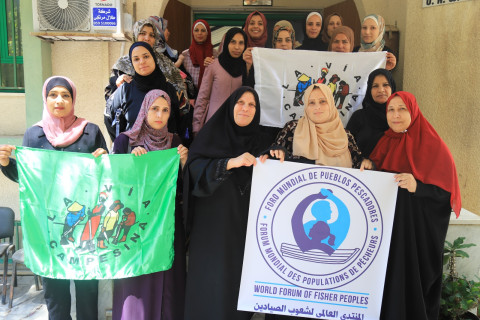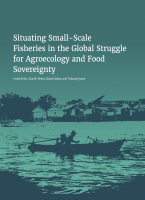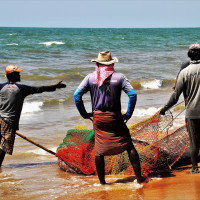World Fisheries Day and the crucial role of Gaza’s fishers
Regions
The real names of the fishers in this story have been changed for personal safety
On 26 September 2023, the Gaza General Union of Fishworkers was admitted as a member of the World Forum of Fisher Peoples (WFFP). The fishworkers’ Union represents Gaza’s 4,000 fishers and an even larger number of women who repair fishing gear, clean fish and sell it at the markets. It was a day of celebration for the fishworkers’ union, established just a few months earlier in Gaza with the support of the Union of Agricultural Work Committees (UAWC). It was also a moment for the global fisher movement, WFFP, to reconfirm its international solidarity with the fisherfolk in Gaza. In the new set of resolutions endorsed by its leadership, the WFFP states “we stand in solidarity with our fisherfolk in Gaza and demand an end to the Israeli occupation of Palestine”.

The following day, Mahmoud of the UAWC, also a member of the WFFP, shook hands with the rest of the fisher movement leadership and prepared for his trip back home to his family and friends. Less than two weeks thereafter the bombs rained on Gaza.
Stories told by Ahmed and Fatima, two leaders of the Gaza fishworkers’ union, when we interviewed them three years earlier pale in comparison to the genocidal attacks carried out by Israeli occupation forces from October 2023, yet they remind us of the long struggle of fishers in Gaza. Around the world fishers wonder if they will return home with or without fish. Already in 2020 in Gaza, this was not the main concern. Speaking about his children who are also fishers, Ahmed explained “the most important thing is their safety and [that] they come back to me. This goes for all the fathers and mothers in Gaza”. In the words of Fatima – who went to the sea with her father at the age of six and started fishing herself at the age of 13, before Israel’s attacks on Gaza in 2008 – “they [the occupation forces] don’t want us to go to the sea. They think that by shooting at us, they will scare us. But we only become more determined to continue fishing [because] there is no alternative [to put food on the table].”
These words are echoed by Mahmoud, who has supported the fish workers in Gaza for two decades. He has explained, in numerous conversations since 2017, how their fishing grounds have been increasingly blocked by the Israeli occupation: initially from the internationally agreed-upon 200 nautical mile zone (sovereign sea territory for coastal states under the United Nations Convention on the Law of the Sea), to 20 nautical miles (the contested Oslo Accord of 1993), to nine nautical miles in the early 2000s, and down to only six miles just before the current war broke out. All these years and even within their zones, fishers have been shot at, injured and killed,1 and boats and fishing gear have been destroyed. The incredible brutality of attacks in October and November 2023 follows and builds on these decades of oppression, violence and dispossession.
The horror unleashed by the Israeli occupation forces is evident from countless media platforms and shall not be repeated here, on World Fisheries Day. Instead, on World Fisheries Day in 2023, we show our solidarity with Fatima, Mahmoud, Ahmed and the thousands of other fisher people in Palestine fighting to be able to live and feed their communities with dignity.





